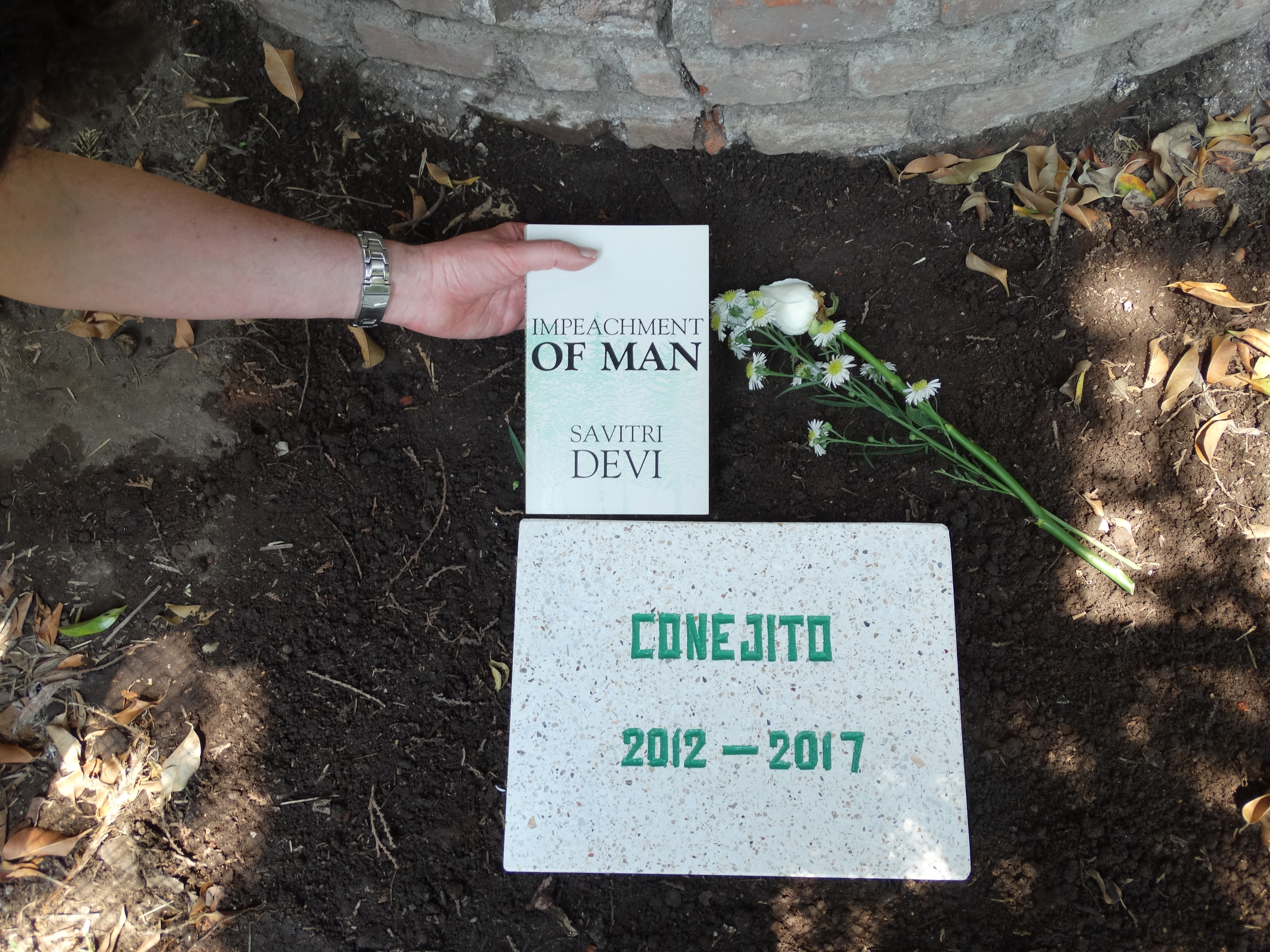
Excerpted from Chapter II: Pessimistic Pantheism
Unlike the previous entry in which I quote magnificent passages from the book of Savitri Devi, here I will not quote passages from the second chapter, “Pessimistic Pantheism.” I just want to say that in this chapter my disagreements begin with Devi, whose real name was Maximiani Portas (for example, Portas speaks of the Hindu religion as the most beautiful of living religions).
To be fair with Portas I must say that in Impeachment of Man this brilliant woman saw some of the great contradictions of Eastern thought. For example, she pointed to the “deep-rooted belief” among the people of India “that the creatures’ suffering in this world is nothing but the unavoidable result of their own bad deeds” in past lives, hence the title of pessimistic pantheism of the chapter. Despite her admiration for a religion that does not kill wandering cows, in this second chapter she also wrote of this “indifference to suffering, which amazes any foreigner lover of animals who happens to have read something of the Hindu Scriptures.”
Having said that, the criticism Portas makes of the Indians’ indifference to suffering animals falls short compared to my radical way of seeing the world. So radical in fact that with my ten books it seems that I wish to found a new religion. Although it is out of place in this entry to convey why I abhor old religions, I can say that whoever assumes the priesthood of the four words (and its corollary, the 14 words) must abandon all faith in otherworldly lives.
In a mere blog entry I won’t expand on this point: it is the subject of my tenth and last book that, if I am allowed to live, I’ll translate into English.
If I find myself writing about Impeachment of Man it is precisely because in the book I started to write recently I could not miss the only pamphlet of an admirer of Hitler who had, as a very high commandment, the welfare of animals.
3 replies on “Impeachment of Man, 2”
Cesar, you say: “So radical in fact that with my ten books it seems that I wish to found a new religion. … I can say that whoever assumes the priesthood of the four words (and its corollary, the 14 words) must abandon all faith in otherworldly lives.”
You have already made clear in your earlier writings that you believe that your existence ends with the death of your physical body, which is the standard view of materialists who think that one’s awareness is just a consequence, somehow, of something specific about one’s brain, such as its electrical activity.
Since you cannot say how your consciousness arises from physical matter, you cannot offer any solid reason to believe that your consciousness will end upon the death of your physical body. Thus, you are only speculating about physical death being your end, and the end of each of us.
Nicholas Humphrey’s A History of the Mind put forward a theory on how consciousness as feeling (rather than thinking) may have evolved. He says that the mind-body problem (consciousness) can be solved not through the philosophy of mind but though evolutionary biology.
It is not my favourite Humphrey book by the way; my favourite is his Leaps of Faith.
Okay.